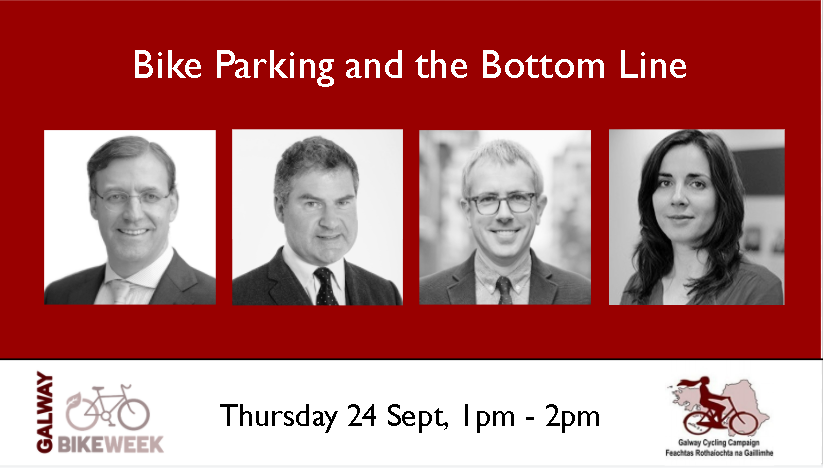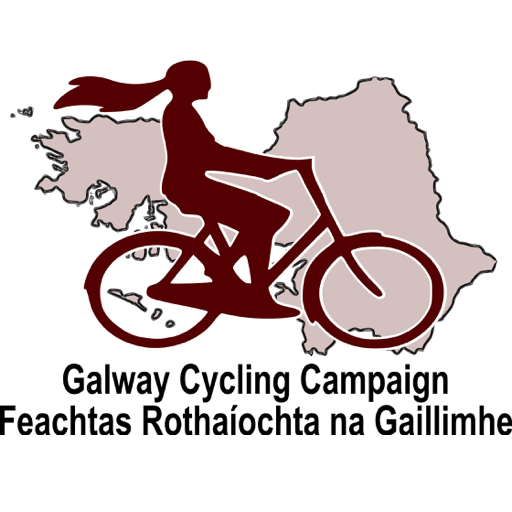Tag: Galway City Council
-
Bike Week 2020
This year Bike Week looks a little different. We’ve organised online meetings, info sessions and working groups since March, and so we’re using this experience to bring you a series of webinars with guests from Ireland, Europ…
-

Photocall & launch/ Supermarket Bike Parking Survey with Minister Hildegarde Naughton
Galway Cycling Campaign is joined by Minister of State at the Dept. of Climate Action and Transport Hildegarde Naughton to launch the Galway Supermarket Bike Parking Survey. We know that […]
-

Lunchtime webinar / Bike Parking and the Bottom Line with Dutch Ambassador, HE Adriaan Palm
The Embassy of the Netherlands, Dutch Cycling Embassy, Dublin Town, and Development Studies Association of Ireland at Trinity College Dublin join Galway Cycling Campaign to discuss Bike Parking and the Bottom […]
